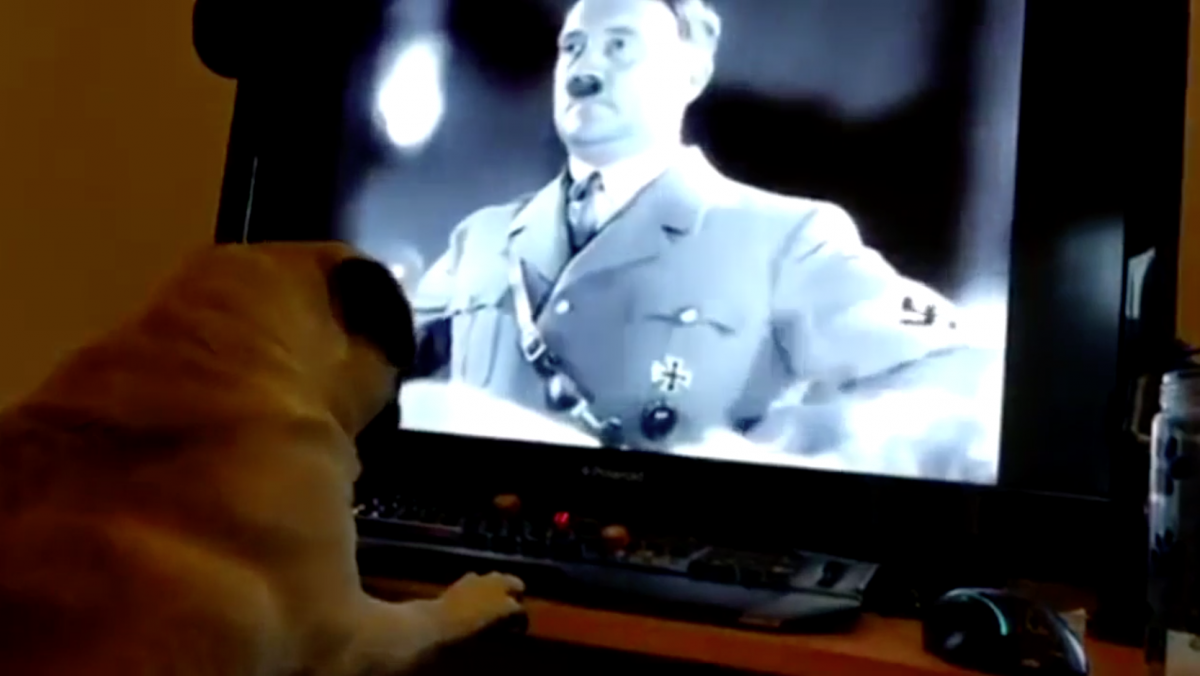Free Speech
“Hate Speech” Does Not Incite Hatred
The claim that “hate speech” causes hatred, and thereby causes violence, is superficially appealing, but the more one thinks about it, the less sense it makes.

The United States Supreme Court has recently reaffirmed that “[s]peech that demeans on the basis of race, ethnicity, gender, religion, age, disability, or any other similar ground” is protected under the First Amendment of the United States Constitution. However, the protections of the First Amendment extend only to government efforts to punish or censor speech. Private entities remain free to take action against people who engage in speech which ostensibly demeans others, and private actors from Harvard University to Facebook and Twitter have punished or censored individuals whose speech they have found to be “hateful.”
Those who advocate the censorship of so-called “hate speech” claim that it causes various ills, but perhaps the most common claim is that “hate speech” engenders hatred towards particular groups, and thereby causes violence against members of those groups. Such claims have been particularly common in recent years, and have included allegations that “anti-police hate speech” on the part of Black Lives Matters supporters has led to violence against police officers; that Donald Trump’s campaign rhetoric has led to an increase in hate crimes; and that anti-Muslim hate speech on the Internet can motivate some people to commit acts of violence against Muslims.
The claim that “hate speech” causes hatred, and thereby causes violence, is superficially appealing, but the more one thinks about it, the less sense it makes. Is it really likely that otherwise reasonable people will be driven to hate others, and to violently attack those others, simply because they were exposed to hate speech? The proponents of that view rarely, if ever, offer direct evidence for that claim. There is a simple explanation for that failure: such evidence does not exist.
At first blush, that would seem to be an outlandish claim. What about the infamous “hate radio” in Rwanda? Doesn’t everyone know that those broadcasts caused people who had peacefully coexisted with their neighbors to engage in genocide? Well, in fact, there is no evidence that that is true. This common understanding of the role of “hate radio” overlooks basic facts of Rwandan history, including the fact that the genocide took place in the midst of a Tutsi-dominated insurgency that had begun in 1990, and which had resulted in hundreds of thousands of internally displaced Rwandans as insurgent forces approached the capital in 1993, just a year before the beginning of the genocide. Thus, the myth that Rwanda was an Arcadia of ethnic harmony before the “hate radio” broadcasts began is just that: a myth.

Perhaps more importantly, the popular narrative regarding the role of “hate radio” ignores twenty years of scholarship which finds little evidence that the radio broadcasts caused people to engage in genocide. For example, a 2017 study published in Criminology found no statistically significant relationship between radio exposure and killing.1 Moreover, the anthropologist Charles Mironko interviewed one hundred convicted perpetrators and found that many either did not hear the “hate radio” broadcasts or misinterpreted them, and University of Wisconsin political scientist Scott Straus found that peer pressure and personal appeals, not hate radio, is what motivated most perpetrators.2 Similarly, political scientist Lee Ann Fujii’s book-length study of the Rwandan genocide found that those who participated in the genocide did not show unusual levels of fear or hatred of Tutsis. Instead, they participated through personal relationships with local elites, often because they feared repercussions if they did not participate. Hate had nothing to do with it.
Professor Fujii’s findings are consistent with a recent study that was published in the Quarterly Journal of Economics, which found that villages with better radio reception had higher levels of participation in the genocide, but which credited that effect not to the creation of hatred, but rather to the fact that the broadcasts told those who were already willing to participate how to coordinate with others, and assured them that the government supported the killing and hence that they would not be punished.
At this point, an alert reader might object that several “hate radio” executives were convicted of genocide-related offenses, and might also point to the well-known claim that some of the killers “had a radio in one hand and a machete in the other[.]” That is true, but it is also true that immediately after the assassination of the Rwandan president, the “hate radio” broadcasts shifted from general propaganda to broadcasting specific advice and instructions to those already participating in the genocide regarding who to kill and where to find them.3 It was for only those post-assassination broadcasts that radio executives were convicted, rather than for the pre-genocide, more generalized “hate speech.”
Finally, these findings regarding the role of “hate radio” in the Rwandan genocide is consistent with what we know about the effects of propaganda in general. Contrary to popular belief, there is little evidence that propaganda is able to change minds; rather, it is generally effective only among those who already agree with it, and counter-productive among those who disagree.4 That was true even of Nazi anti-Jewish propaganda, which decreased denunciations of Jews by ordinary people in areas which had not historically been anti-Semitic.5
Therefore, the scholarly consensus is clear: “Hate speech” does not engender hatred. Rather, to the extent that is has any effect on violence at all, it makes it somewhat easier for those already inclined towards violence to act, largely by placing an imprimatur of official approval on acts of violence, and thereby making people who are already hateful and prone to violence believe that they can get away with acting violently.

This implies that censoring “hate speech” by ordinary persons is pointless – it is only “hate speech” by elites that can be dangerous (and even then not by creating hatred). There is no evidence that “hate speech” by ordinary persons has any effect on violence whatsoever. Thus, the efforts of such private actors as Facebook and Twitter to scrub the internet of what they deem to be “hate speech” by ordinary persons are, at best, misguided. But such efforts can also be dangerous because they help create excuses for governments to use allegations of “hate speech” to silence ideas that they dislike. Indeed, Freedom House has noted that that has already occurred in Russia, French courts have upheld “hate speech” convictions of advocates of the BDS movement to boycott of Israel, and in Spain, Catalan separatists who burned photographs of the Spanish monarch were fined on the grounds that they had incited violence and promoted hate speech.
Finally, efforts to censor extremists can backfire by causing them to see themselves as a persecuted minority who are justified in using violent means to be heard. Therefore, as painful as American law’s protection of “hate speech” can be, the alternative is almost certainly worse. In addition, given that even the Supreme Court recognizes that, in the contemporary world, “the most important places … for the exchange of views … is cyberspace …, and social media in particular[,]” Twitter, Facebook, and other private actors should resist calls to censor hateful speech; they might believe that doing so serves the public interest, but in fact it does quite the opposite.
References:
1 Hollie Nyseh Brehm. 2017. Subnational Determinants of Killing in Rwanda. Criminology, 55(1): 5-31. http://onlinelibrary.wiley.com/doi/10.1111/1745-9125.12126/full
2 Scott Straus, 2007. What is the relationship between hate radio and violence? Rethinking Rwanda’s “Radio Machete”. Politics & Society, 35(4): 609-637. http://journals.sagepub.com/doi/abs/10.1177/0032329207308181
3 Richard Carver. 2000. Broadcasting and Political Transition: Rwanda and Beyond. African Broadcast Cultures: Radio in Transition, edited by Richard Farndon and Graham Furniss, 188-197. Oxford: James Currey 190.
4 Hugo Mercier. 2017. How Gullible Are We? A Review of the Evidence from Psychology and Social Science. Review of General Psychology, 21(2): 103-122. http://psycnet.apa.org/journals/gpr/21/2/103/
5 Maja Adena, Ruben Enikolopov, Maria Petrova, Veronica Santarosa, Ekaterina Zhuravskaya. 2015. Radio and the Rise of The Nazis in Prewar Germany. The Quarterly Journal of Economics, 130(4): 1885–1939. https://academic.oup.com/qje/article-abstract/130/4/1885/1916582?redirectedFrom=PDF






